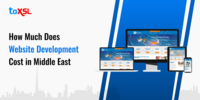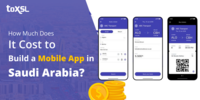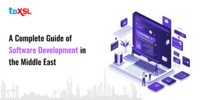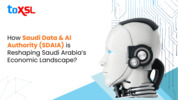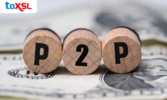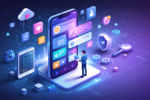- Oct 22, 2024
Share this post on:
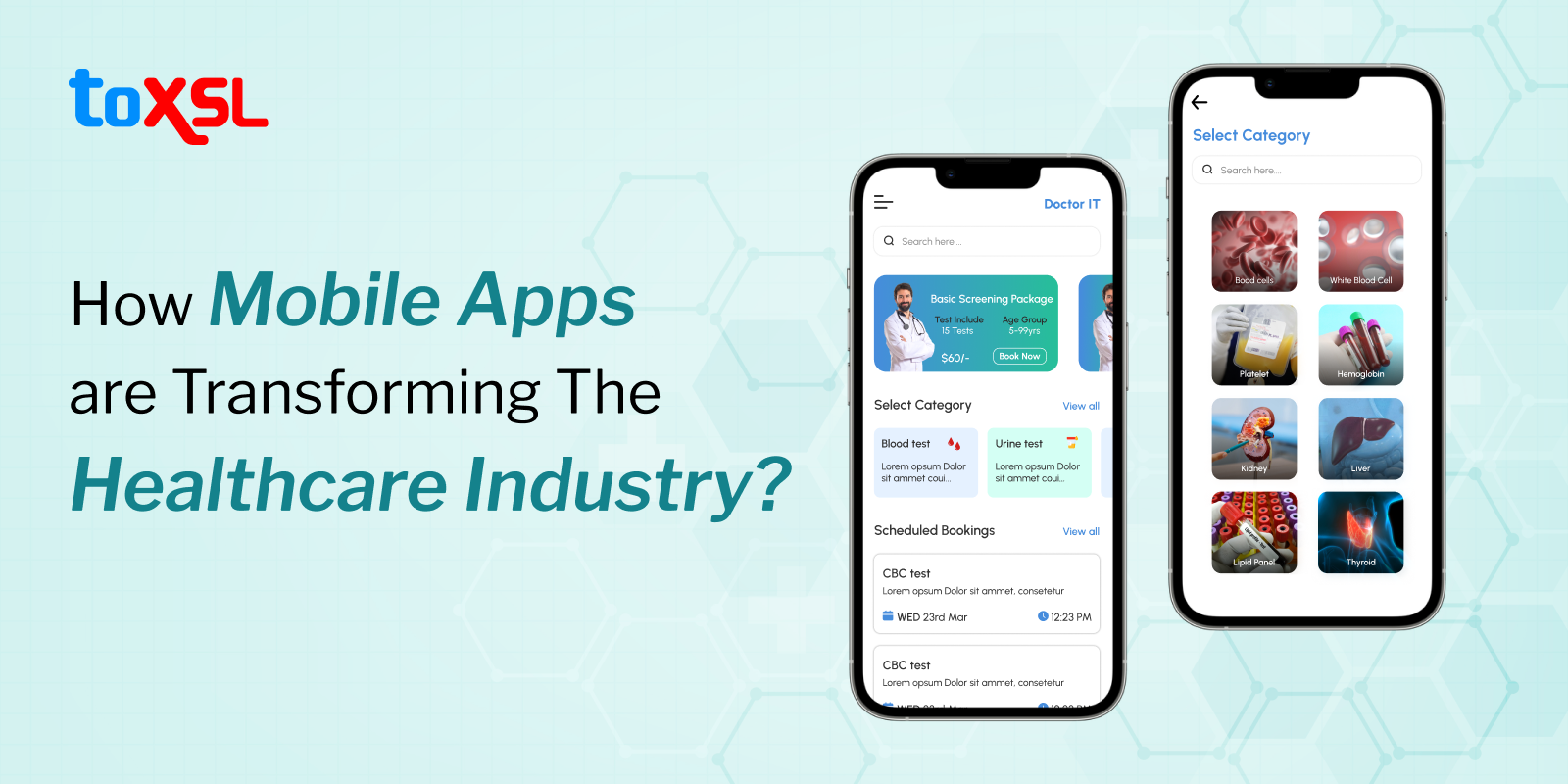
The introduction of mobile apps has greatly impacted many areas, including medicine. Healthcare professionals now use apps to perform several tasks that previously required a pager or cellphone. Smartphones and tablets consolidate computing and communication functionalities into a single handheld or pocket-sized device, enabling convenient access and utilization at the point of care.
Healthcare apps on mobile devices provide benefits to patients, doctors, hospitals, and pharmacists by offering services such as medical supply delivery, online consultations, diagnostics, and appointment scheduling. Patients can access medical care remotely through the use of mobile app development services. Furthermore, clinic personnel and independent physicians can enhance their workload management. Business owners must innovate in a manner that ensures more inclusive and sustainable healthcare for all individuals. Now let us dive into the blog and shed light on the significance of mobile app development for patients, doctors, and medical professionals, popular healthcare app features, and emerging technology for healthcare app development.
Healthcare Mobile Apps: Market Overview
The healthcare industry is leveraging the widespread use of smartphones and tablets by encouraging the use of healthcare mobile apps. These apps are designed to empower patients by providing them with a convenient and accessible way to manage their health, communicate with healthcare providers, and access medical information on the go. This not only enhances patient experience and engagement but also leads to better health outcomes and a more efficient healthcare system.
1. Market size and Growth
The global healthcare mobile application market was valued at $11.17 billion in 2020 and is projected to reach $155.57 billion by 2028, growing at a CAGR of 34.6% from 2021 to 2028.
he COVID-19 pandemic has further accelerated the adoption of healthcare mobile apps, with more users turning to telemedicine and remote monitoring solutions.
2. User Adoption
A survey found that in the United States,76% of respondents have used a healthcare mobile app at least once.
The most common reasons for using healthcare apps include tracking health data (52%), scheduling appointments (48%), accessing medical records (43%), and communicating with healthcare providers (36%).
Significance of Mobile App Healthcare App Development for Patients
The healthcare industry has undergone a momentous transformation in recent years with the integration of mobile applications specifically designed for healthcare purposes. Without a doubt, healthcare app development has revolutionized the way patients interact with healthcare services, providing them with unparalleled access to medical resources and drastically enhancing their overall well-being.
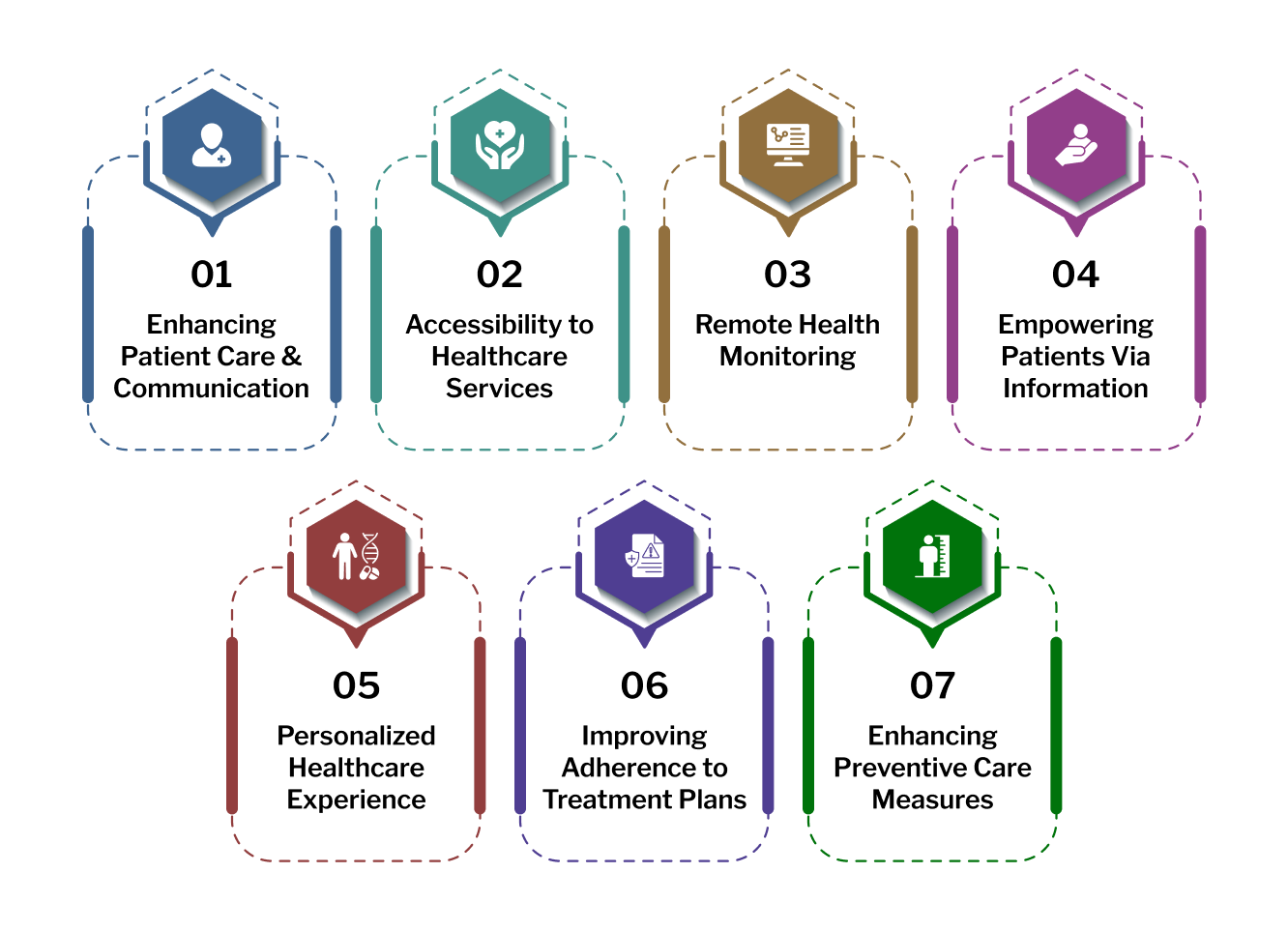
Enhancing Patient Care and Communication
One of the key benefits of Healthcare Mobile App Development is its role in enhancing patient care and improving communication between patients and healthcare providers. Patients can easily schedule appointments, receive medication reminders, access their medical records on the go, and even consult with healthcare professionals remotely. This seamless communication channel fosters a stronger patient-provider relationship and ensures that patients receive timely care and attention.
Accessibility to Healthcare Services
Mobile healthcare apps have significantly improved the accessibility of healthcare services for patients. With just a few taps on their smartphones, patients can connect with doctors, monitor their health status, track their progress, and access vital health information anytime, anywhere. This level of accessibility is particularly beneficial for individuals with chronic conditions or those living in remote areas with limited access to healthcare facilities.
Remote Health Monitoring
Another critical aspect of Healthcare Mobile App Development is remote health monitoring. Patients can use these apps to track their vital signs, record symptoms, monitor their progress over time, and share this data with their healthcare providers. This real-time monitoring capability enables early detection of health issues, timely intervention, and personalized treatment plans tailored to individual patient needs.
Empowering Patients Via Information
Mobile healthcare apps empower patients by providing them with valuable health information at their fingertips. Patients can educate themselves about various health conditions, medications, treatment options, lifestyle changes, and preventive measures through these apps. This knowledge equips patients to make informed decisions about their health and actively participate in their care management.
Personalized Healthcare Experience
Healthcare Mobile App Development offers a personalized healthcare experience for patients by tailoring services to meet individual needs. From customized treatment plans to personalized wellness goals, these apps cater to specific patient requirements and preferences. Patients feel more engaged in their care journey when they have access to personalized resources that address their unique health concerns.
Improving Adherence to Treatment Plans
Mobile healthcare apps play a crucial role in improving patient adherence to treatment plans. By sending medication reminders, tracking progress, setting goals, and providing educational resources, these apps help patients stay on track with their prescribed treatments. Improved adherence leads to better health outcomes and reduced hospital readmissions due to complications arising from non-adherence.
Enhancing Preventive Care Measures
Preventive care is a cornerstone of maintaining good health and preventing chronic diseases. Healthcare App Development promotes preventive care measures by encouraging regular health screenings, vaccinations, lifestyle modifications, and early intervention strategies through interactive features embedded in the apps. Patients can proactively manage their health by following the evidence-based preventive care guidelines available on these platforms.
Telemedicine Consultations
Telemedicine has emerged as a popular feature in many mobile healthcare apps due to its convenience and accessibility. Patients can consult with healthcare providers via video calls or chat sessions without having to visit a physical clinic or hospital. Telemedicine consultations save time for both patients and doctors while ensuring continuous care delivery during emergencies or when in-person visits are not feasible.
Data Security and Privacy
Data security and privacy are paramount considerations in Healthcare Mobile App Development to safeguard patient information from unauthorized access or breaches. Developers implement robust security measures such as encryption protocols, secure data storage practices, user authentication mechanisms, and compliance with data protection regulations like HIPAA (Health Insurance Portability and Accountability Act) to ensure patient data confidentiality.
Significance of Mobile App Healthcare App Development for Doctors and Medical Professionals
Healthcare Mobile App Development has completely revolutionized the way doctors and medical professionals deliver care to their patients. In today’s digital age, mobile apps have become a critical component of healthcare, and their significance cannot be overstated. These applications have transformed clinical practice by providing a wide range of functionalities that aid in information management, patient care, clinical decision-making, and overall efficiency. It's undeniable that healthcare mobile applications have proven themselves to be invaluable tools for medical professionals, and their use will only continue to grow in the future. Let’s delve into the detailed significance ofHealthcare Mobile App Development for doctors and medical professionals.
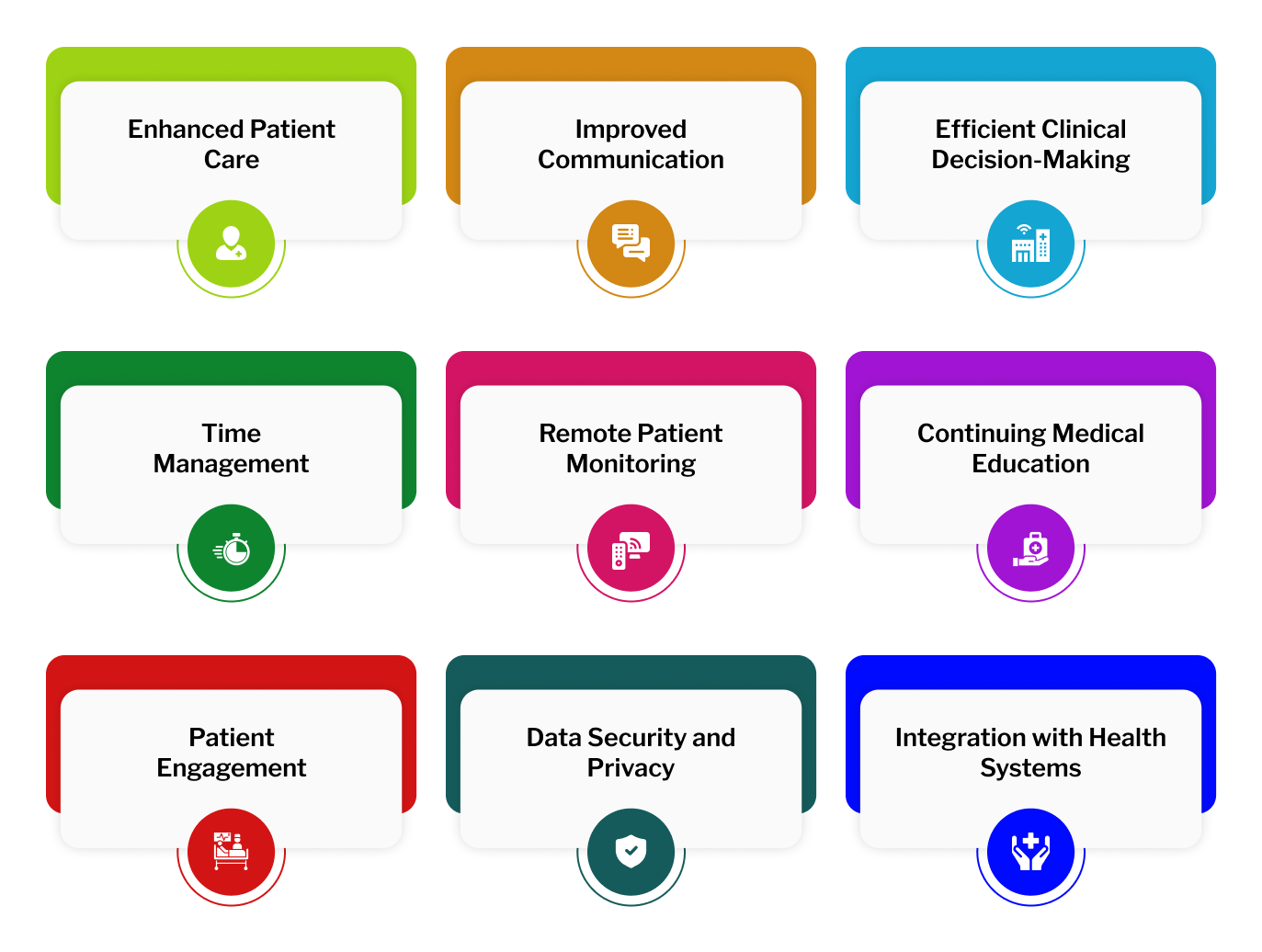
Enhanced Patient Care: One of the primary benefits of healthcare mobile applications for doctors is the ability to provide enhanced patient care. These apps allow doctors to access patient records, medical history, test results, and other critical information at their fingertips. This instant access to information enables healthcare providers to make informed decisions quickly, leading to improved patient outcomes.
Improved Communication: Healthcare mobile applications facilitate seamless communication between doctors, patients, and other healthcare professionals. Features such as secure messaging, video consultations, and appointment scheduling enhance communication channels and ensure that patients receive timely care. Doctors can easily collaborate with specialists, share information with colleagues, and engage with patients remotely through these apps.
Efficient Clinical Decision-Making: Healthcare mobile apps offer tools that support clinical decision-making at the point of care. From drug reference guides to medical calculators, these apps provide valuable resources that help doctors diagnose conditions accurately and choose appropriate treatment plans. By having access to evidence-based information on their mobile devices, doctors can deliver high-quality care efficiently.
Time Management: Mobile healthcare apps streamline administrative tasks for doctors and medical professionals, saving time and increasing productivity. Features like electronic health record (EHR) access, appointment reminders, and billing functionalities automate routine processes, allowing doctors to focus more on patient care. Time-saving tools integrated into these apps enable healthcare providers to manage their schedules effectively and optimize workflow.
Remote Patient Monitoring: With the rise of telemedicine and remote patient monitoring technologies, healthcare mobile apps play a crucial role in enabling doctors to monitor patients’ health remotely. These apps can collect real-time data on vital signs, symptoms, medication adherence, and lifestyle factors from patients using connected devices. Doctors can track their patients’ progress outside of traditional clinical settings and intervene proactively when necessary.
Continuing Medical Education (CME): Healthcare mobile apps offer opportunities for doctors to engage in continuing medical education (CME) conveniently. Many apps provide access to online courses, medical journals, research articles, and educational resources that help doctors stay updated on the latest advancements in their field. By incorporating CME features into mobile app developers support lifelong learning among medical professionals.
Patient Engagement: Mobile healthcare apps empower patients to take an active role in managing their health by providing them with tools for self-monitoring and health tracking. Doctors can recommend these apps to their patients for tracking symptoms, medications, diet, exercise routines, and other health-related activities. By promoting patient engagement through mobile apps, doctors can foster better adherence to treatment plans and improve health outcomes.
Data Security and Privacy: Ensuring data security and privacy is paramount in healthcare mobile app development. Developers must adhere to strict regulations such as HIPAA compliance to safeguard sensitive patient information stored within the app. Encryption protocols, secure login mechanisms, data backup procedures, and audit trails are essential features that protect patient data from unauthorized access or breaches.
Integration with Health Systems: Healthcare mobile apps are increasingly designed to integrate seamlessly with existing health systems such as electronic health records (EHRs) and hospital information systems (HIS). This interoperability allows doctors to securely access comprehensive patient data across different platforms. By connecting mobile apps with institutional databases and clinical systems, medical professionals can deliver coordinated care more effectively.
Popular Healthcare App Features for Doctors and Medical Professionals
Healthcare apps have become essential tools for doctors and medical professionals to streamline their workflow, enhance patient care, and improve overall efficiency. These apps offer a wide range of features designed to meet the specific needs of healthcare providers. Let’s explore some of the most popular healthcare app features that are highly beneficial for doctors and medical professionals:
1. Appointment Scheduling and Reminders
Appointment scheduling is a standard feature of healthcare apps for doctors and medical professionals. This feature allows patients to schedule appointments online, reducing the administrative burden on medical practices. Appointment scheduling features can also send reminders to patients, reducing the number of missed appointments and improving practice efficiency.
2. Electronic Health Records (EHRs) Access
One of the most crucial features of popular healthcare apps for doctors and medical professionals is the integration of Electronic Health Records (EHRs). EHRs allow medical professionals to access a patient’s medical history, including allergies, medication, lab results, and previous diagnoses. This information enables doctors to make informed decisions about a patient’s care quickly, reducing errors and improving patient outcomes.
Moreover, EHRs can be updated in real-time, ensuring that all medical professionals involved in a patient’s care have access to the most up-to-date information. This feature is particularly important in emergencies, where quick access to a patient’s medical history can be lifesaving.
3. Telemedicine Capabilities
Another essential feature of popular healthcare apps is telemedicine. Telemedicine allows doctors to consult with patients remotely, reducing the need for in-person visits. This feature is particularly useful for patients who live in remote areas, have mobility issues, or are unable to take time off work for appointments.
Telemedicine can also be used for follow-up appointments, monitoring chronic conditions, and providing mental health services. By providing these services through a healthcare app, doctors can reach more patients and provide more convenient care.
4. Prescription Management
Prescription management is another critical feature of healthcare apps for doctors and medical professionals. This feature allows doctors to prescribe medication electronically, reducing the risk of errors associated with handwritten prescriptions. Additionally, prescription management features can check for drug interactions, allergies, and other contraindications, further reducing the risk of adverse events.
Prescription management features can also track medication adherence, reminding patients to take their medication as prescribed. This feature is particularly important for patients with chronic conditions, where medication adherence can significantly impact outcomes.
5. Patient Education
Patient education is an essential component of healthcare apps for doctors and medical professionals. This feature provides patients with information about their condition, treatment options, and self-care strategies. By providing this information through a healthcare app, doctors can ensure that patients have access to accurate and reliable information, reducing the risk of misinformation and improving patient outcomes.
Patient education features can also include interactive tools, such as quizzes and videos, to engage patients and promote learning. Additionally, patient education features can track patient engagement and understanding, providing doctors with valuable insights into their patients’ health literacy and needs.
6. Clinical Decision Support
Clinical decision support tools integrated into healthcare apps provide evidence-based guidelines, drug information databases, diagnostic support, and treatment recommendations to assist doctors in making informed clinical decisions. These tools help doctors stay updated on the latest medical knowledge, adhere to best practices, and deliver high-quality care to their patients.
Emerging Technology for Healthcare App Development
The integration of emerging technologies into healthcare app development has become crucial for enhancing patient care, improving efficiency, and driving innovation. Choosing the right emerging technology with the help ofapp development services provider for your healthcare app development can significantly impact the success and effectiveness of your application. In this blog post, we will explore some of the key emerging technologies that are revolutionizing healthcare app development and discuss their potential benefits and use cases.
1. Artificial Intelligence (AI)
Artificial Intelligence (AI) has emerged as a game-changer in healthcare app development due to its ability to analyze complex medical data, improve diagnostic accuracy, personalize treatment plans, and automate administrative tasks. AI-powered healthcare apps can leverage machine learning algorithms to predict patient outcomes, detect diseases at an early stage, and optimize resource allocation in healthcare facilities. Moreover, AI chatbots integrated into healthcare apps can provide real-time assistance to patients, answer queries, and offer personalized health recommendations.
2. Internet of Things (IoT)
The Internet of Things (IoT) is another transformative technology that is reshaping the healthcare industry by enabling seamless connectivity between medical devices, wearables, and healthcare apps. IoT devices, such as smartwatches, fitness trackers, and remote monitoring tools, can collect real-time health data from patients and transmit it to healthcare apps for analysis. This data-driven approach allows healthcare providers to monitor patient health remotely, track medication adherence, and intervene proactively in case of emergencies. By integrating IoT technology into healthcare apps, developers can create innovative solutions for remote patient monitoring, chronic disease management, and preventive care.
3. Blockchain
Blockchain technology offers a secure and transparent platform for storing and sharing sensitive healthcare data while ensuring data integrity and privacy. By leveraging blockchain technology in healthcare app development, developers can create decentralized systems for managing electronic health records (EHRs), facilitating secure data exchange between healthcare providers, and enabling patients to have greater control over their health information. Blockchain-based healthcare apps can enhance data security, streamline interoperability among different healthcare systems, and improve the overall efficiency of healthcare delivery.
4. Augmented Reality (AR) and Virtual Reality (VR)
Augmented Reality (AR) and Virtual Reality (VR) technologies are revolutionizing the way medical professionals train, diagnose patients, and perform surgeries. Healthcare apps integrated with AR/VR capabilities can provide immersive training experiences for medical students, simulate surgical procedures for practicing surgeons, and visualize complex medical imaging data in 3D space. These technologies have the potential to enhance medical education, improve surgical outcomes, and increase patient engagement by offering interactive experiences through healthcare apps.
5. Voice Recognition Technology
Voice recognition technology is gaining traction in healthcare app development as it enables hands-free interaction with digital devices and facilitates efficient documentation of patient information. Healthcare apps equipped with voice recognition capabilities can transcribe patient-doctor conversations accurately, automate clinical documentation processes, and enhance the overall user experience for both patients and healthcare providers. Voice-enabled healthcare apps can improve workflow efficiency, reduce administrative burden on clinicians, and ensure accurate capture of patient data during consultations.
How can ToXSL Technologies help you develop a custom healthcare app?
So, if you are looking to develop a healthcare app, it is advised to choose the right technology, and choosing the right emerging technology for your healthcare app development requires careful consideration of your specific use case requirements, budget constraints, regulatory compliance standards, and scalability needs. But how will you decide what or not to choose?
Well, ToXSL Technologies, a leading mobile app development company in Dubai, is here to help. We have a team of developers who leave no stone unturned to get you the outcome that will help you enhance the revenue of your organization.

